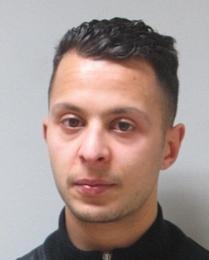A special court in France will on Wednesday begin re-examining the 2015 Paris terror attacks by a Jihadi commando whose only surviving member has the dubious distinction of being France’s most watched prisoner.
The Special Assise Court in Paris is scheduled to deliberate for the next nine months on the deadly attacks, which killed 130 persons and wounded over 350 in Paris and Saint-Denis on 13 November 2015, and horrified the French nation, the European continent and the world.
The last remaining member of the Jihadi commando, Salah Abdesalam, was captured in Belgium on 18 March 2016 after being on the lam for four months. He was transferred to France just over a month later, on 27 April, under a European arrest warrant and placed in provisional detention in Fleury-Mérogis Prison – Europe’s biggest jail - in the south of Paris.
Over the past five years, he has remained in solitary confinement in a cell equipped with a 24-hour video-surveillance system, a first in France. Cameras record his every move, both in his cell and during his daily walks, which he does alone in a yard off the ground.
Then French Justice Minister Jean-Jacques Urvoas had the system installed prior to Abdesalam’s extradition to France to guarantee that “there is no empty chair at the trial.”
Originally, there was no legal basis for the constant video surveillance of the key suspect of the attacks, but this was later provided, on 9 June 2016, by a ministerial decree that was then approved in Parliament and validated by the Council of State.
Salah Abdesalam appealed against the round-the-clock surveillance to a French higher court on the grounds that it violated his privacy. However, the court ruled that the exceptional nature of the terrorist acts with which he was charged required that every precaution be taken to prevent him from committing suicide or escaping.
Under French law, a prisoner detained in isolation – as opposed to one placed in the “pound” as a disciplinary measure – retains his rights to information, visits, written correspondence, telephone calls, religious practice and at least a one-hour walk in the open air.
Keeping Abdesalam in special detention comes with a cost. In response to a question in Parliament, published in the Official Gazette on 2 February this year, Justice Minister Eric Dupond-Moretti said it amounted to over 430,000 euros per annum, including 397,340 euros for personal expenses.
The sum of about 190,000 euros was also spent on a system for scrambling mobile phone communications close to his cell, while setting up the video-protection system cost over 16,000 euros, according to the minister.
In addition to the cell occupied by Abdesalam, there are four others dedicated to his detention: one for the surveillance system, another that serves as an exercise room – also video-monitored – with a bicycle and a rower, and two others left vacant for security reasons.
The Brussels Times

